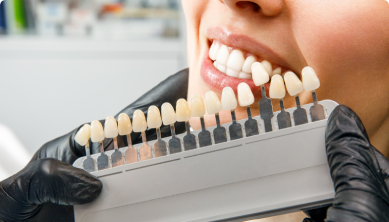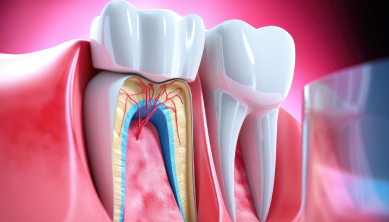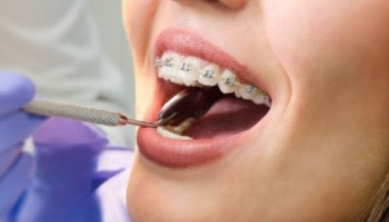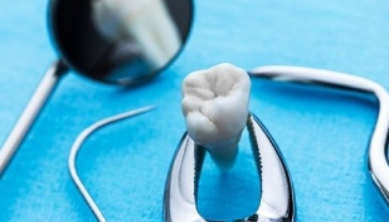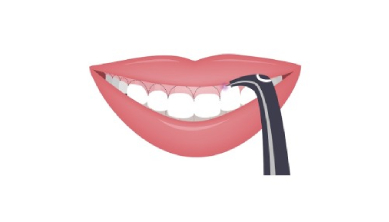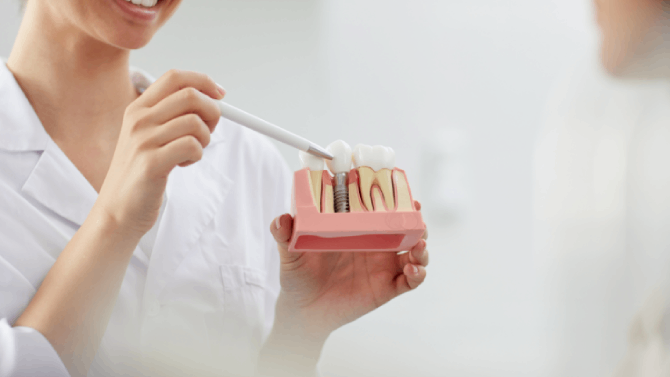
Implant Treatment
What Is An Implant?
They are artificial teeth roots in the shape of screws, which replace the lost teeth due to trauma, caries and periodontal diseases. Implants, made of titanium, which is a material compatible with the tissue, are the most preferred treatment method today because they are the best alternative to natural teeth.
What Is The Purpose Of Implant Operation?
Bone resorption due to tooth loss leads to a decrease in the level and volume of the jawbone. Placement of dental implants prevents bone loss and stabilizes it. Implants have a function close to natural teeth in the performance of functions such as chewing, smiling and talking. This functionality provides patients with social, psychological and physical comfort.
Who Can Receive Implant Treatment?
Implant treatment is suitable for any patient who has completed his/her growth and development, has no serious diseases and has sufficient bone tissue.
What Are The Advantages Of Implant Treatment?
- It helps to achieve a more aesthetic appearance by eliminating the necessity for the use of movable prostheses.
- It provides the opportunity to use a fixed prosthesis even for edentulous patients.
- Necessary retention can be provided by applying implant treatment on movable prostheses where there is not enough bone support.
- It helps to eliminate nausea that occurs in patients using total and movable prostheses.
- Thanks to the implant, a better chewing function and, accordingly, a healthier and balanced diet are achieved.
- Patients regain self-confidence.
How Long Does Implant Treatment Take?
Implants treatment is performed in two phases. The first stage is the placement of the implant, while the second stage is the manufacturing of the prosthetics to place on top of the implant. There is 3-6 months long waiting period after the operation to ensure that implants fully merge with the jawbone. This period may be even longer in some cases. In the waiting period, temporary prostheses can be used for a brief period according to the characteristics of each clinical case and the dentist's expert opinion so that the patient is not edentulous.
What Are The Circumstances Which Make Implant Treatment Impossible?
Implant treatment may not be suitable for following patients: • Patients who have advanced bone resorption,
- İmportant heart conditions,
- Blood clotting problems,
- Rheumatic diseases,
- Serious or unstable diabetes,
Insufficient or inappropriate bone structure in the jaw.
What Are The Bone Augmentation Treatments That May Be Needed Before Implant Treatment?
Bone structure of individuals, who are not suitable for the implant procedure, is rendered suitable for implants with alveolar augmentations (operations that will increase the amount of bone) in the checkups performed before the implant treatment. Alveolar Augmentations include operations such as Sinus Lifting, Autogenous Block Graft Application and Graft Membrane Application.
What Are The Stages Of Implant Treatment?
Examination and Planning
Implant procedure is performed with a multidisciplinary approach. The surgeon or dentists, who will insert the implant into the jawbone, and prosthetics specialist, who will make the prosthesis, work together. Apart from people with certain advanced systemic diseases that can not be controlled, such as diabetes, implant is suitable for everyone. During the examination, a detailed intraoral examination, where the relationship of gums, lower and upper mandible and positions of teeth are examined, is conducted. They also work on plaster models by taking measurements. In addition to regular radiographs, in complicated cases, three-dimensional tomography is taken by obtaining a model of the jaw in the exact scale on a special device to determine the placement of implants. Planning and treatment are explained to patients in detail.
Placement of the Implant
The right planning is crucial for a good implant treatment. It is undoubtedly essential that the operation is performed after the planning with adequate equipment and an experienced team. Implant procedure, as other dental treatments, is performed while the patient is under local anesthesia. But in some cases, such as long operations, extremely stressed patients, cases where the mandible volume is not enough and the augmentation of tissue, which we call a graft, is necessary, the operation is performed comfortably while the patient is under general anesthesia or sedation.
Making Prostheses
After surgery, there is a waiting period for the implant to attach to the bone surface which is called osseointegration. This period changes according to the structure of bone. After this period is completed, the prosthesis on top is made. Following the operation, temporary prostheses are placed for aesthetic and functional reasons until prostheses are ready.
Implant With Advanced Surgical Techniques
Implant treatments are performed using advanced surgical techniques in our Oral and Dental Health Center. A zygomatic implant is recommended for patients who cannot have an implant in their upper jawbone. An All On Four implant allows dentists to fix a dental prosthesis on the same day on four dental implants placed at certain angles in edentulous patients.
ALL ON 4 TREATMENT
An All On 4 treatment is an implant technique that allows dentists to fix a dental prosthesis on four dental implants placed at certain angles in completely edentulous patients on the same day. This technique is administered to patients who have lost all their teeth or have no bones in the posterior regions of the mandible. Patients, who are found to be unsuitable for implant treatment due to bone loss, can regain their smile and chewing functions with this technique. Edentulous patients who do not have systemic diseases and have sufficient bone structure may prefer this technique.
How Is All On 4 Treatment Performed?
In the All On Four treatment, a detailed clinical and radiological examination is required for patients who are scheduled to receive this type of treatment. We use panoramic radiography and tomography in our center to decide where and how to place the implants. A schedule is determined spesifically for the patient by taking measurements on computed tomography (CT).
Four implants are placed in the jawbone and the temporary dental prosthesis is fixed to the dental implants on that day. After 3 months, permanent dental prostheses are placed. All On Four is a procedure that can be easily performed while the patient is under local anesthesia. It can also be performed under sedation or general anesthesia in patients who are extremely scared.
What Are The Advantages Of All On 4 Treatment?
It offers the opportunity to have a fixed dental prosthesis with a single surgical procedure on the same day for edentulous patients.
The operation is easier since no further surgical procedure such as bone placement is performed.
Its cost is even lower since the number of implants used is reduced and does not require additional surgical procedures.
It is suitable for patients who cannot use movable dental prostheses.
It is easier to use because it does not cover the palate of the patient.
Since the operation is performed on the same day, it is suitable for patients residing outside the city or country.
Let's schedule an appointment for your All On 4 treatment!
Implant Treatment Cost
Implant treatments are determined according to several criteria such as the intraoral condition of the patient after the examination of the maxillofacial surgeon, whether there is sufficiant bone tissue, proximity to the sinuses, and the suitablity of the distance between the teeth. Implant treatments are personalized.
Implant dental treatment cost is determined according to factors such as whether laser implant or all on four procedure should be preferred, equipment to be used, patient's age, whether additional treatments are required, dental implant brands to be used, duration and planning of the treatment.
Although prices of implant treatment seem high, it is a successful treatment when performed by an experienced expert dentist and they can last many years if patients keep up with their oral and dental care.


